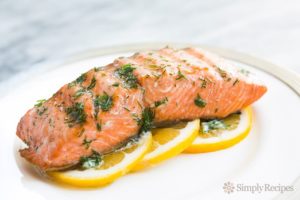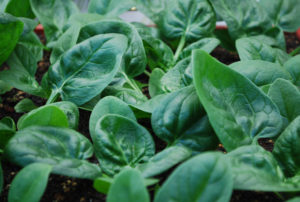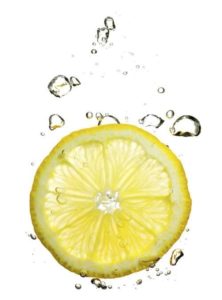 For many, this week or next ushers in a new school year for our children. We want them to be prepared to give it their all and so we’ve paid for new books, new folders, and new pens, pencils and calculators. But are we also helping them feel their best and be prepared to fight off the germs and bacteria that usher in colds, flu, and other common “school year illnesses”? To keep the immune system working at its best, we can increase our intake of the following foods. They are recommended by my good friend and owner of Architect Sports, Alan Tyson (I add the last one because I swear by it):
For many, this week or next ushers in a new school year for our children. We want them to be prepared to give it their all and so we’ve paid for new books, new folders, and new pens, pencils and calculators. But are we also helping them feel their best and be prepared to fight off the germs and bacteria that usher in colds, flu, and other common “school year illnesses”? To keep the immune system working at its best, we can increase our intake of the following foods. They are recommended by my good friend and owner of Architect Sports, Alan Tyson (I add the last one because I swear by it):
 1. Mangoes
1. Mangoes
Mangoes include a broad spectrum of antioxidants, including vitamin A and zinc. Vitamin A enhances immunity by revving up the function of white blood cells, which fight infection. Zinc is one of the most important nutrients for maintaining an overall healthy immune system. How to get it: Whip up some mango salsa or a mango smoothie, or top yogurt with fresh mango slices. Strive to consume about 1 cup a day for the best benefit.
 2. Garlic
2. Garlic
Sometimes referred to as the “poor man’s antibiotic,” garlic has been eaten for centuries for its broad spectrum of therapeutic benefits. It is believed to stimulate the immune system by increasing the number of lymphocytes (white blood cells). Even more, two compounds found in garlic, inulin and allicin, are thought to be responsible for effectively killing bacteria as well as intestinal parasites. How to get it: Add fresh garlic to sauces and dressings. Try to eat at least a clove every day during flu season.
 3. Mushrooms
3. Mushrooms
Chinese medicine and Eastern cultures have relied on mushrooms for their health benefits and immune-boosting properties for centuries. Beta-glucans, a type of sugar found in both raw and cooked mushrooms, is believed to be responsible for the immune-stimulating properties. In addition, mushrooms are the only vegetable that naturally contains vitamin D, and decreased blood levels of vitamin D have been correlated with an increased risk of catching the influenza virus. We all know this vitamin is critical in bone health especially for the female athlete How to get it: Add mushrooms to salads, sauces and omelets. Eat about 1 cup of white button, crimini, shitake, maitake, reishi or portobello mushrooms every day.
 4. Salmon
4. Salmon
During the winter months when the air is dry, mucous membranes dry out and crack, providing the perfect opportunity for viruses and other nasty bugs to enter the body. Eating more fish that are rich in omega-3 fats can help maintain healthy cell membranes. Salmon (and other seafood) is also a source of selenium, which has been shown to reduce the severity of a virus once a person is exposed. How to get it: Broil a salmon fillet or salmon steak and serve with fresh mango salsa. Eat salmon twice a week. Also consider fish oil supplementation.
 5. Green Tea
5. Green Tea
Drinking plenty of fluids during flu season is especially important for hydration as it helps the body maintain a strong defense against bad bugs. Green tea also contains epigallocatechin gallate ECG, which has been shown to decrease the chances of the common cold from spreading. How to get it: Drink 2 to 3 cups of green tea each day to get immune-boosting benefits and stay hydrated.
 6. Yogurt – Greek Yogurt (not the sugary kind)
6. Yogurt – Greek Yogurt (not the sugary kind)
Aside from being an excellent source of calcium, dairy products like yogurt provide immuneboosting vitamin D and probiotics (also referred to as”live active cultures”). Vitamin D’s production of antimicrobial substances is believed to stop viruses from spreading in the body. Probiotics found in yogurt can help the body fight infections and boost immunity by fortifying the healthy bacteria found in the digestive tract. How to get it: Yogurt parfaits are the perfect breakfast or dessert. Make tangy salad dressings with plain yogurt or add to smoothies for an extra nutritional boost. Consume two servings of yogurt daily.
 7. Almonds
7. Almonds
Almonds contain vitamin E, which may help prevent colds and ward off upper respiratory infections. Vitamin E is a powerful antioxidant that works in combination with other nutrients found in almonds, including selenium and magnesium. How to get it: Make your own granola with toasted almonds, rolled oats and cinnamon. Or use almond butter instead of peanut butter. Eat about 22 almonds (or its equivalent) a day.
 8. Spinach
8. Spinach
Spinach is a nutrition powerhouse offering several key nutrients that help to boost immune function and health. It is a rich source of vitamin A, vitamin E, vitamin K, magnesium, folate, iron, vitamin B-2, calcium, potassium, vitamin B-6, copper, protein, phosphorus, zinc, niacin, selenium and omega-3 fatty acids. With all these vitamins in one food, it’s no wonder everyone should be consuming more of this leafy green. How to get it: Sautee spinach with garlic and onions. Or make a spinach salad with pomegranate dressing, topped with toasted almonds. Don’t forget to add some chicken, turkey, or fish for some added protein.
 9. Lemon Water
9. Lemon Water





Speak Your Mind